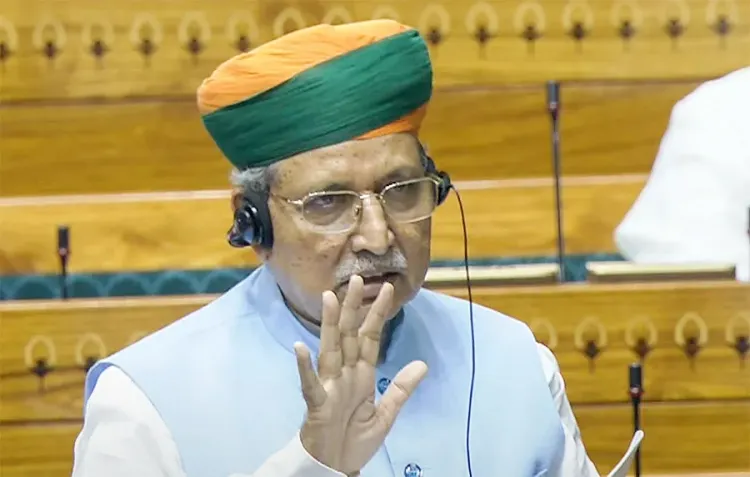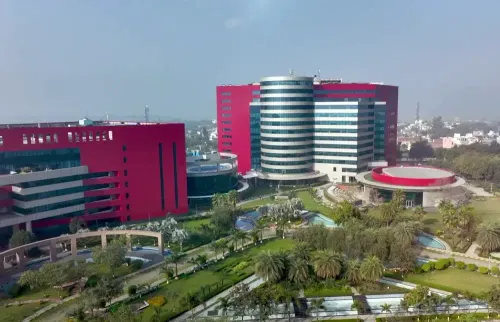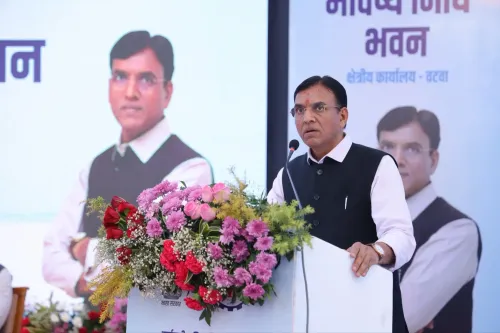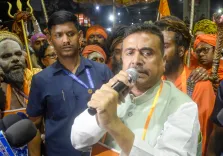How is the Government Promoting Institutional Arbitration in Tier II and Tier III Cities?

Synopsis
Key Takeaways
- Promotion of Institutional Arbitration in smaller cities.
- Introduction of the Mediation Act, 2023.
- Establishment of the Mediation Council of India.
- Financial allocations for enhancing arbitration infrastructure.
- Creation of the India International Arbitration Centre.
New Delhi, Aug 1 (NationPress) The government has set its sights on fostering institutional arbitration for resolving disputes in Tier II and Tier III cities, aiming to establish a robust framework to facilitate this initiative, as stated in the Lok Sabha on Friday.
The Minister of State (Independent Charge) for Law and Justice, Arjun Ram Meghwal, provided insights in a written response, highlighting the government's commitment to enhancing the acceptance of institutional arbitration even in smaller urban areas. To further this goal, a conference titled ‘Institutional Arbitration: An Effective Framework for Dispute Resolution’ was held in June.
Detailing the measures implemented to fortify the arbitration and mediation landscape, Meghwal noted, “A national-level Mediation Conference was convened by the Attorney General for India in collaboration with the Department of Legal Affairs and the India International Arbitration Centre in May at Bharat Mandapam.”
The objective of this conference was to advocate for mediation as a primary mechanism for resolving disputes and conflicts throughout the nation, he added.
Meghwal further stated that the Mediation Act, 2023, has been passed to enhance mediation practices, particularly institutional mediation, in India. Section 31 of the Act mandates the formation of the Mediation Council of India, which will serve as a national authority to promote mediation as the preferred dispute resolution method and recognize mediation service providers across the country.
He also mentioned that the India International Arbitration Centre Act, 2019 was enacted to establish the India International Arbitration Centre (IIAC), aimed at creating an independent, autonomous, and world-class entity to facilitate institutional arbitration.
This centre has been designated as an institution of national significance, he added.
In terms of financial allocations, the MoS shared data regarding the budget and actual spending over the past five years for enhancing arbitration and mediation infrastructure, including capacity building, panel development, and technology integration. “A budget allocation of Rs 3.56 crore has been earmarked for IIAC in 2025-26,” he stated.
In the fiscal year 2024-25, spending on arbitration and mediation infrastructure reached Rs 3.75 crore; in 2023-24, it was Rs 3 crore, and Rs 15 lakh was reported for 2022-23, according to the MoS.
The Centre's objective is to instill confidence among parties by offering a dispute resolution platform for commercial disputes through arbitration, Meghwal explained.
The vision for the Centre is to transform it into a model arbitral institution within the country, thereby improving the overall quality of the institutional arbitration framework.
“Aside from the India International Arbitration Centre, no other arbitration or mediation centres have been established by the Central government,” he noted in his response.










